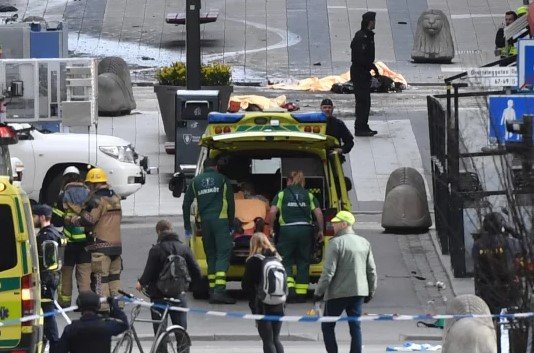Egypt has strongly condemned a terrorist attack in northwest Pakistan that killed several soldiers and left others injured. The incident happened on September 13, 2025, in North Waziristan, where militants targeted a military convoy, sparking international outrage and calls for solidarity against extremism.
Details of the Attack Emerge
Security forces in Pakistan faced a brutal assault when militants from the Tehrik-e-Taliban Pakistan group ambushed a convoy in the rugged terrain of North Waziristan. Reports indicate the attack involved heavy gunfire and explosives, leading to significant casualties on both sides.
Officials confirmed that 19 Pakistani soldiers lost their lives, while forces eliminated 35 militants in the ensuing clash. This event marks one of the deadliest confrontations in the region this year, highlighting ongoing security challenges along the Pakistan-Afghanistan border.
Local authorities described the scene as chaotic, with the ambush occurring near the Datta Khel area. Eyewitnesses reported hearing explosions and gunfire that echoed through the valleys, disrupting daily life in nearby villages.
The Pakistani military responded swiftly, launching operations to clear out remaining threats. This response included airstrikes and ground sweeps, aimed at preventing further incursions.

International Reactions Pour In
Egypt’s foreign ministry released a statement on September 14, 2025, expressing firm rejection of violence and terrorism. The country offered condolences to the victims’ families and wished a quick recovery for the injured, standing in full solidarity with Pakistan.
Other nations quickly joined in condemnation. The United Arab Emirates denounced the attack, emphasizing the need to combat extremism that threatens regional stability.
Türkiye also voiced strong disapproval, calling the act heinous and extending sympathies to those affected. These responses underscore a growing global consensus against such violence.
- UAE: Highlighted the loss of security personnel and reaffirmed support for Pakistan’s anti-terror efforts.
- Türkiye: Urged international cooperation to eradicate terrorism roots.
- Other voices: Several Arab states echoed similar sentiments, linking the incident to broader Middle East security concerns.
Background on Regional Tensions
Northwest Pakistan has long been a hotspot for militant activities, with groups like the Tehrik-e-Taliban Pakistan exploiting porous borders with Afghanistan. Recent years have seen a surge in attacks, fueled by political instability and cross-border movements.
In 2025 alone, multiple incidents have rocked the area, including infiltration attempts and vehicle bombings. Experts point to the withdrawal of foreign troops from Afghanistan in 2021 as a turning point that allowed militant groups to regroup.
Pakistan’s government has ramped up border security, investing in fences and surveillance tech. However, challenges persist due to difficult terrain and limited resources.
A timeline of key events in 2025 shows the escalating pattern:
| Date | Location | Incident | Casualties |
|---|---|---|---|
| March 1 | North Waziristan | Suicide bombing on army convoy | Over 20 reported |
| March 23 | North Waziristan border | Infiltration foiled, terrorists eliminated | 9 militants killed |
| August 8 | Zhob Sector | Security forces strike terrorist group | 25 militants eliminated |
| September 13 | North Waziristan | Ambush on military convoy | 19 soldiers, 35 militants dead |
This table illustrates the frequency of attacks, with September’s incident being the latest in a troubling series.
Economic impacts are also felt, as instability disrupts trade routes and local businesses. Communities in Khyber Pakhtunkhwa province suffer from displacement and fear, calling for more government aid.
Implications for Pakistan’s Security
The attack raises questions about Pakistan’s counter-terrorism strategies. Analysts suggest strengthening intelligence sharing with neighbors could help, but diplomatic hurdles remain.
Prime Minister Shehbaz Sharif has vowed to eradicate terrorism, announcing enhanced military deployments. Public support for these measures is high, though some critics argue for addressing root causes like poverty and education gaps.
International aid plays a role too, with partners like the United States providing equipment and training. Yet, the human cost continues to mount, affecting families across the nation.
Path Forward Amid Global Support
As investigations continue, Pakistan aims to bolster its defenses while seeking justice for the fallen. The condemnations from Egypt and others signal a united front against terror, potentially leading to joint initiatives.
Experts believe sustained pressure on militant hideouts could reduce threats, but long-term peace requires dialogue and development in affected areas.
What do you think about these events? Share your thoughts in the comments below and spread the word by sharing this article with others who follow global news.
